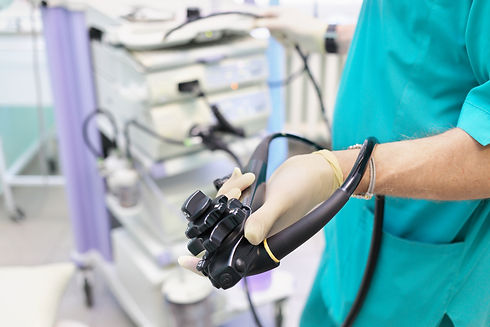
GASTROSCOPY
Upper and lower gastrointestinal endoscopy is a minimally invasive procedure that can aid in the diagnostic evaluation of clinical signs referable to the esophagus, stomach, and proximal small intestine. GI endoscopy is one of the most widely indicated application of endoscopy in small animals
Gastroscopy can be used to investigate and treat both acute and chronic GI signs, including vomiting, hematemesis, poor appetite, hypersalivation, melena, and weight loss.
Gastroscopy is being performed currently for
-
Examination of the gastric mucosal surface.
-
Collection of gastric mucosal biopsy samples.
-
Detection and retrieval of gastric foreign bodies
-
Percutaneous gastrostomy tube placement
-
Investigation
Gastroscopy main advantages
-
Non-invasive technique requiring no surgical intervention.
-
Well-tolerated by sick dogs which would be unsuitable for laparotomy
-
Requires only light general anesthesia - rapid recovery
-
Good visualization of the gastric mucosa
